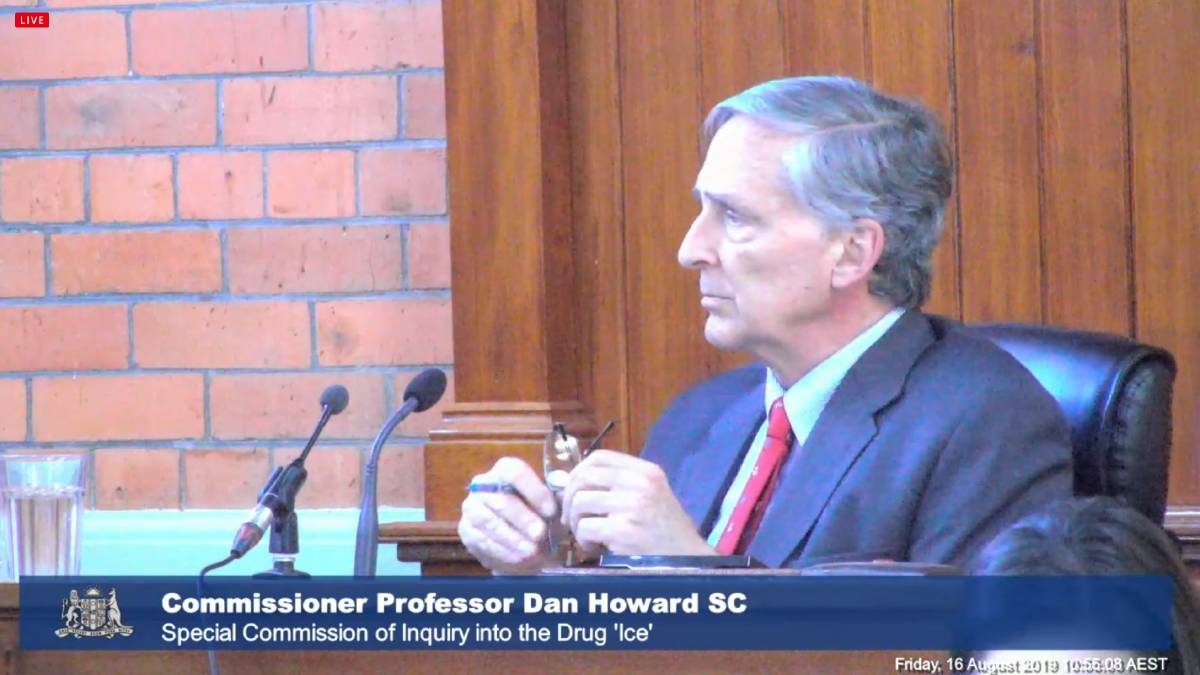
The real problems are ones that the government prefers to ignore: chronic underfunding of health and social support services, stigma and discrimination, and a legal system that targets already vulnerable people for punishment.
Berejiklian government’s response to ice inquiry close to contempt
Will Tregoning
6.5.21
Australian governments have had a lot of practice at ignoring expert reports about drugs.
Gladys Berejiklian’s NSW government has shown form once again in its 14 months of silence following the NSW Ice Inquiry report – an inquiry it organised.
Professor Dan Howard, a barrister and law lecturer who led the inquiry, on Tuesday called the government “a disgrace” for how they have handled the inquiry.
Howard did an incredible job as the NSW Ice Commissioner, talking to communities across the state and drawing on scientific evidence from around the world.
Straight off the bat back when they received the report in 2020 the government rejected five of its recommendations: about injecting centres; syringe programs; substance testing; and drug dogs.
That’s been followed by over a year of inaction.
This is the same government that hasn’t bothered developing an official drug strategy since the last one lapsed 11 years ago. Its unofficial strategy is law and order rhetoric plus indifference.
Every day communities across NSW see the impacts of that indifference toward some of the most vulnerable people in the state. Regional areas are particularly hard hit because services are few and far between and disadvantage is entrenched by government neglect.
Without a genuine and constructive response from government, this inquiry is just another burden on some of the most disadvantaged communities and under-resourced organisations in the state.
Inquiries like this one don’t come for free, and the money the government spent on it is only a fraction of the cost borne by the hundreds of people and organisations from across the state who participated, contributing time and effort.
Howard held 47 days of hearings and round tables. His team made 140 additional requests for information from experts and drug-related health organisations. One hundred and twenty Aboriginal people from eight communities participated in round tables and a First Nations advisory committee provided guidance.
Hundreds of people and organisations doing the real work of taking care of people donated their time and effort to this inquiry. They participated in good faith with the hope government would act decisively to make things better.
Instead, the government’s response to date is closer to contempt.
Howard’s team wrote a 1000-page report and made over 100 recommendations.
The report includes a recommendation to decriminalise drug use – another recommendation the government has indicated they won’t support.
It is sticking by a system that criminalises mostly vulnerable people while privileged people who chose to use drugs are not targeted.
In recent years there have been many inquiries like this one by governments across Australia. Their impact has been minimal. It’s clear expert reports won’t make governments do the right thing about drugs.
A big part of the reason is that it’s the governments that are still defining the problem for these inquires. And one way or another, they define the problem as drugs.
Dan Howard’s inquiry was set up by Berejiklian’s government to solve the problem of ice. That focus plays easily into the rhetoric of a government keen to cover up its own failures.
The reality is that drug use itself is not the problem. Whenever the decriminalisation of drugs is raised advocates for the “war on drugs” say that doing so would normalise drug use. But as the statistics on illicit drug use show, using these drugs is already normal across all classes and walks of life. Drug use can be managed well – as we can see with alcohol – and does not have to end in the kind of suffering that Dan Howard’s inquiry heard so much about.
The problem is not that everyone who tries drugs ends up addicted. The real problems are ones that the government prefers to ignore: chronic underfunding of health and social support services, a legal system that targets already vulnerable people for punishment, and a culture of stigmatising and discriminating against people for their drug use.
Solve those problems and we will solve ice.
Berejiklian’s government has shown yet again that we can’t leave it to the politicians to lead. We need a broad and honest conversation about drugs and a vocal, active movement that puts the focus where it should be: on fairness.
That’s a standard to which we should hold governments like this one to account.
Originally published in the Sydney Morning Herald.
Sign up
Sign up for movement news and opportunities to get involved
We are building a movement to make drug use legal and safe in Australia so that everyone has a better chance to lead a healthy and happy life.